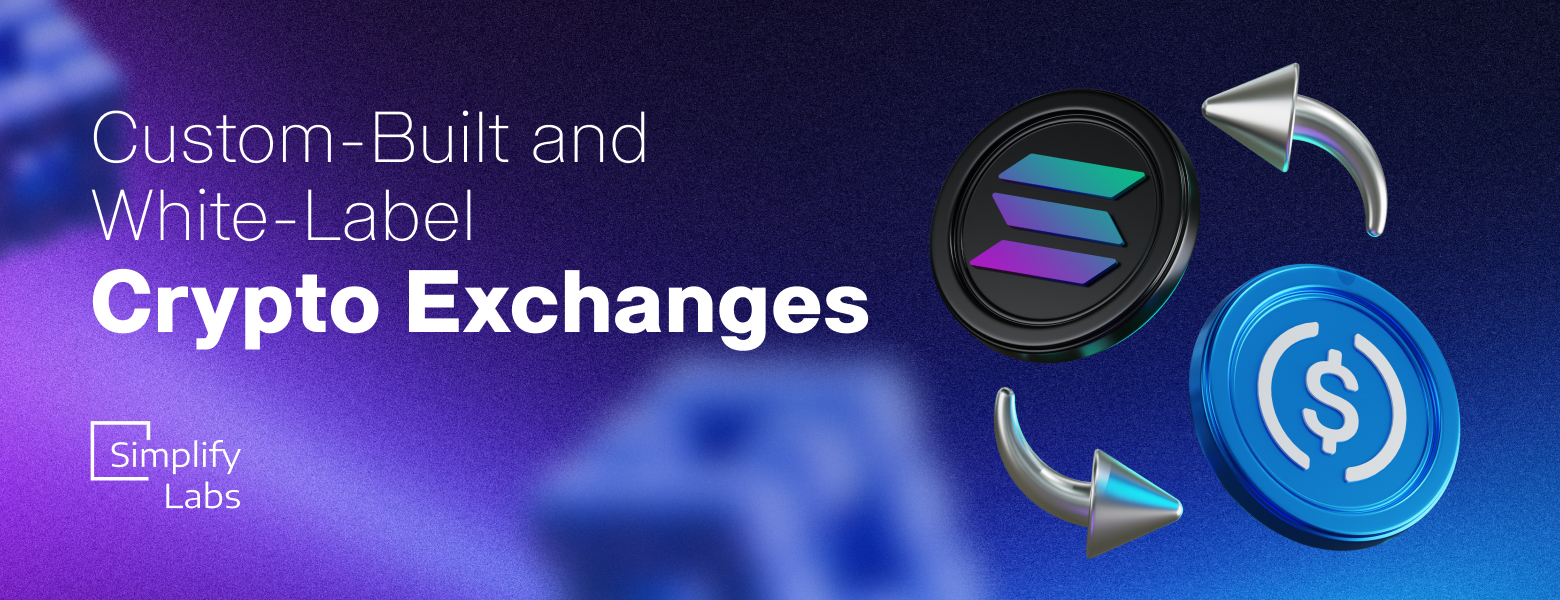The crypto world is moving at a breakneck speed and there are far more choices for trading platforms now than ever before. But these platforms generally fall into two categories, namely, Centralized exchanges (CEX) and decentralized exchanges (DEX). So, between CEX platforms and DEX platforms, which is better for traders?
Short Summary
- CEXs are friendlier and let users trade fast against a high-liquidity pool—but are vulnerable to hacks.
- DEXs are more secure and private, but slower and have lower liquidity.
- Users must consider security, liquidity, and costs in deciding the most suitable exchange for them.
Understanding Centralized Exchanges (CEX)
Centralized exchanges (CEXs) came first and not very different from traditional stock exchanges. They are overseen and managed by a central authority and crypto users generally deposit funds into a centralized wallet. The trading process is also traditional: an order book system allows users to buy and sell on the platform.
Being more straightforward, many traders consider CEXs to be more user-friendly than DEXs. But there’s a trade-off. The convenience offered by these platforms comes at the cost of users handing over the control of their funds and having to deal with different rules and regulations decided by the platform’s central authority.
Advantages of CEX
CEXs’ principal advantage is the user-friendly interfaces. These interfaces let crypto traders use a variety of tools and features that make buying and selling crypto as effortless as breathing. Added to this ease is the plus of speed, with these platforms being a lot faster than DEXs.
The second big advantage is the higher liquidity and broader range of trading pairs—at least, compared to DEXs. Because CEXs typically have more users and trading activity, they can afford to give users competitive pricing and let them trade at whatever price point they want.
Disadvantages of CEX
But using CEXs comes at certain costs, the first being that they are too easily hacked. Because of how they are designed to have a single central authority, any reasonable cyber burglar would think they are easy to break into.
Moreover, CEXs have to deal with constant government regulations and interventions, which means users have to bother with downtimes and caps on trading activities. That is not to mention the lengthy and intrusive KYC/AML ID verification processes users are forced to go through.
Deciphering Decentralized Exchanges (DEX)
Decentralized exchanges (DEXs) are the latest on the crypto block, and focus on being more secure and private. With them, users can trade peer-to-peer, and not worry about an imposing central authority. The platforms also use advanced blockchain tech like smart contracts, which go to show how much autonomy over funds they grant users.
However, being so advanced, the decentralized finance (DeFi) ecosystem can be troublesome for users that aren’t very tech-savvy. Nevertheless, DEXs are great options when all you care about is platform security, privacy, and decentralization.
Advantages of DEX
The principal advantage of DEX platforms is security. Users on these platforms have absolute control over their funds and private keys, so both hacks and government interruptions are almost zero.
Plus, DEX platforms are also the better option when considering privacy. Since users don’t have to undergo KYC checks, transactions are as confidential as they can be.
Disadvantages of DEX
The main issue with using DEX platforms is how terrible their user interfaces can be compared to CEXs. The overemphasis on advanced tech, being so overwhelming and intimidating, typically leaves inexperienced users with digital scars. The best example of this is when users have to interact with smart contracts.
Additionally, DEX platforms are not big on high liquidity or speed. Plus, with so small a user base, their prices are not very competitive.
Comparing CEX and DEX: Key Factors to Consider
Security, privacy, liquidity (and trading pairs), and costs (including fees) are the main factors you should consider when thinking about choosing between a CEX and DEX platform.
On a side note, a Simplified white label solution can help you easily start your own CEX. With their one-stop business package, you get the latest crypto tech with access to both expert legal support and unlimited liquidity. Then you’re off to a great start with a ready-made crypto business.
Security and Privacy
Regarding security and privacy, CEXs are not as secure as DEXs. With their centralized-authority system, hackers can attack one point and get whatever they want if they are successful. Of course, with measures like two-factor authentication and encryption, these hacking attempts usually fail.
Whereas DEXs are all about security. The fact that they are decentralized and let users have total control over private keys means that they’re far less likely to be hacked. As a plus, government intervention is virtually zero. Therefore, apart from being less user-friendly and too complicated, DEX security and private advantages put them on top of CEX platforms.
Liquidity and Trading Pairs
When it comes to liquidity, especially for major trading pairs, CEXs climb over DEXs. With them, users can trade higher volumes with more range of pairs, all at desirable competitive pricing. In addition to these liquidity advantages, users can also diversify their portfolios.
But DEX platform users are not totally helpless here. If more users favor DEX over CEX, CEX platforms may no longer be on top in terms of liquidity. Furthermore, DEX platforms are launching new stuff every day, like DeFi tokens and projects, showing an edge in digital evolution.
Fees and Costs
Fees and costs also differentiate CEX from DEX. The former charges more, with an average trade costing between 0.1% and 0.5%—which does not include additional fees for depositing, withdrawing, or trading certain currencies.
But DEX platforms generally charge lower. Some don’t even charge at all for trading, although users may still have to shell out funds for things like gas fees (on the Ethereum network).
Choosing the Right Exchange for Your Needs
Ultimately, apart from these factors, new users need to research what other crypto traders are saying about these platforms. This will help you known which is best for your trading situation. Otherwise, you can use both, if you can afford it. If not, build your own crypto platform with Simplify Labs White Label solutions.
Popular CEX and DEX Platforms
Since you have decided to go further on your crypto journey, you have made the right choice by looking for the most suitable exchange type. Having noted factors like security, privacy, costs, and user experience that should influence your choice, you can also check out popular CEX and DEX platforms.
Among CEX platforms, Coinbase, Binance, and Kraken reign supreme. They are the champions of user-friendly interfaces and extensive trading pairs.
On the other hand, Uniswap, PancakeSwap, and SushiSwap are great examples of DEX platforms. With them, you get access to unique features and the growing world of DeFi.
Summary
Neither CEX platforms and DEX platforms are completely bad. Each has its selling point. For CEXs, it’s user-friendly interfaces, higher liquidity, and broad trading pairs. Users solely interested in these things can choose them. They only have to deal with high risks of hacks and thefts, high transaction costs, and possible government restrictions.
For DEXs, the selling points including heightened security, privacy, and decentralization. So, users solely interested in these can choose them. However, they would have to grow familiar with the advanced-tech ecosystem, and generally only worry about lower liquidity and slower transaction speeds.
Frequently Asked Questions
Which is better DEX or CEX?
For new users, CEX platforms are easier to use and have larger liquidity pools. But they fall short when considering security and privacy.
Why use CEX over DEX?
CEXs are great options for users that care about high liquidity and ease of trading. Even though they are not as secure and private as DEXs, they are far more convenient for buying and selling cryptos.
Is trust wallet a DEX or CEX?
Trust Wallet is a wallet and has built-in DEX features. So it is a DEX.
What is a DEX in crypto?
A DEX (short for decentralized exchange) platform lets users engage in crypto-related activities like trading without having to rely on a central authority. These platforms use advanced blockchain features like smart contracts and algorithms that let users interact with each other directly, removing the need for human or computerized intermediaries.
The main selling point of DEX platforms is that they promote user autonomy. This means that users have absolute control of their funds and private keys. So, hacking or government interruption is down to almost zero. As a plus, some DEX platforms don’t charge users for trading and prioritize fast transactions.
Are CEXs more secure than DEXs?
Generally, CEXs are not considered the faster option compared to DEXs. Even with privacy and data protection measures like 2FA, once and again, hackers manage to get through their systems.
On the other hand, DEXs are decentralized. Therefore, they are more secure, more transparent, and come on top in terms of security.






